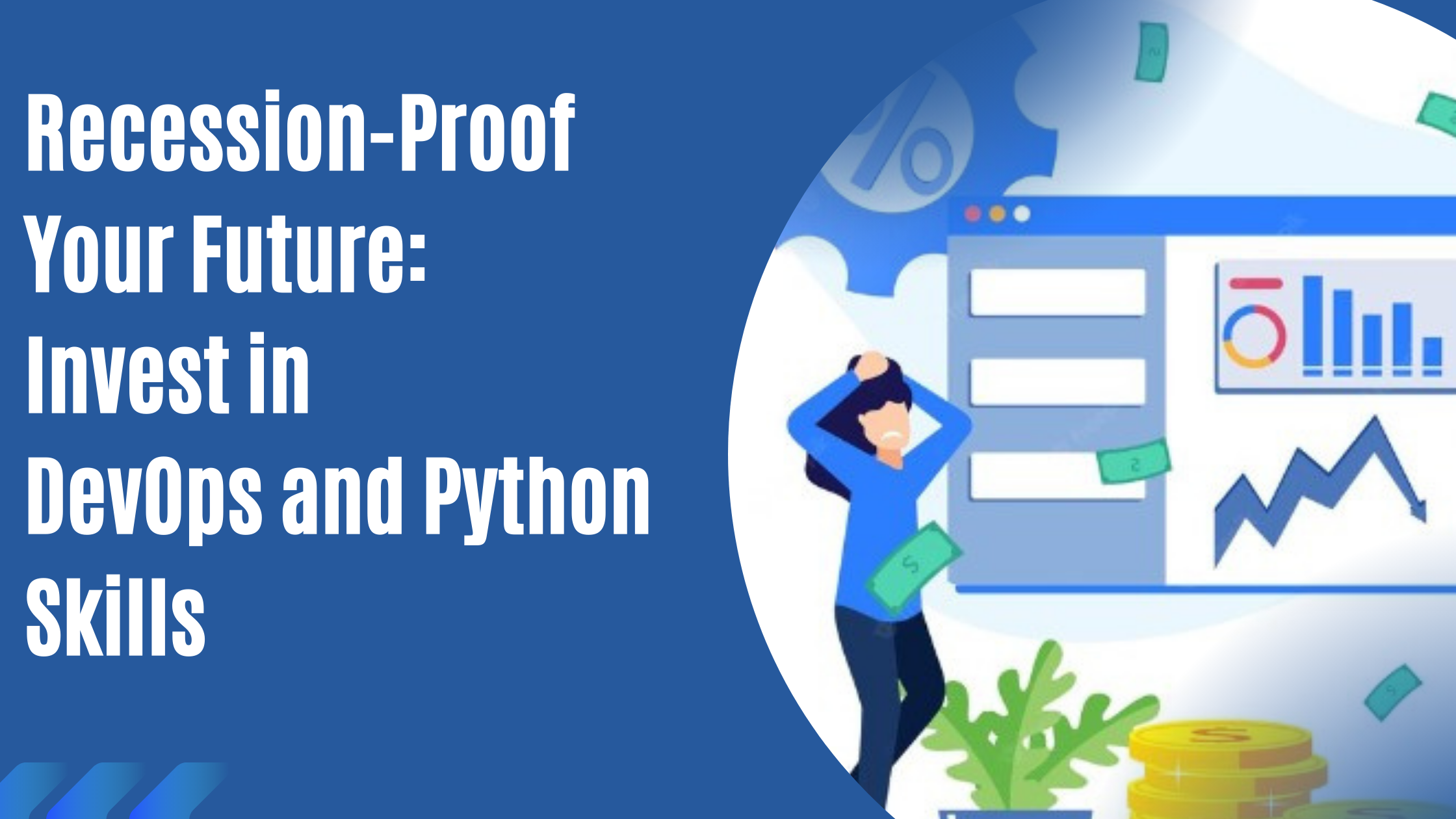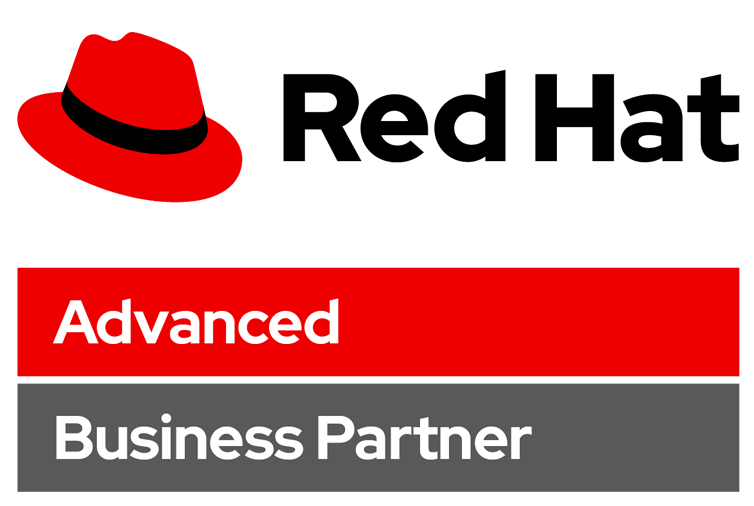Recession-Proof Your Future: Invest in DevOps and Python Skills
Are you looking for a way to recession-proof your future and boost your job prospects? Consider investing time in learning DevOps and Python skills.
With the right skills, you can make yourself recession-proof and insulate yourself against future job losses. Does it sound too good to be true? It’s not. In this article, we’ll explain the advantages of Python and DevOps and show you how investing in DevOps and Python skills can set you up for a secure future.
What Is DevOps and Python?
DevOps is a term you might have been hearing more of, lately. It stands for “development and operations,” and it’s a process that helps developers and operations professionals work together more effectively to create a stable but dynamic operating environment that speeds up the release of new code while lowering the risk of human error.
The goal of DevOps is to shorten the time it takes to get new features and updates into production and to ensure that these updates are high-quality and error-free. It’s an approach that’s been gaining popularity in recent years as businesses have come to realise that it can help them be more agile in today’s rapidly changing marketplace. Python is a programming language that’s often used in conjunction with DevOps. It’s simple to use, versatile, and capable of powerful data analysis. Python and DevOps are great choices for those who want to improve their job prospects in today’s economy.
How DevOps and Python Fit Into a Recession-Proof Strategy
So, how do DevOps and Python fit into a recession-proofing strategy? Firstly, they are two of the most in-demand skill sets right now, and having them will give you a huge edge in the job market.
DevOps is a combination of coding and system administration that helps businesses build applications quickly, with better safety. DevOps also helps teams build better products with faster deployment cycles. It’s an important skill for companies operating in competitive industries.
DevOps is a perfect example of a technology that’s recession-proof. Why? Because it’s a set of skills that involves multiple disciplines. DevOps engineers are good at doing more with less, which is a very important skill in economic downtime. So, whether your company is downsizing or expanding, there will always be a need for DevOps engineers.
As a multipurpose language, Python is widely used not only in web applications, but also in DevOps, Data Science, and Machine Learning projects, which are set to be some of the most valuable disciplines in the upcoming decade. With Python skills, you can do things like data mining, predictive modelling, and natural language processing. In a world where big data is only getting bigger, that kind of expertise is in high demand.
By learning Python, you’ll open up opportunities to develop applications for AI systems or create your own machine learning projects. It’s also popular with major tech companies, so learning Python could give you an edge in the job market.
But that’s just the beginning. Both DevOps and Python have excellent job prospects, so combining them with other skills can make you a top competitor for jobs even when the economy faces down times. These are technologies that are here to stay, and they’re only going to become more important in the years to come.
Reasons to Learn Python
Python is another skill that will come in handy both during and after a recession. Python has applications from web development to machine learning, so having a strong knowledge base of this language can put you on the cutting edge of technology. Plus, given how versatile Python is, investing time in mastering it now could open up additional job opportunities—even ones that aren’t around yet!
Python is ranked second among programming languages in the TIOBE Index, which ranks them according to user popularity. In the top 50, it is also the programming language with the fastest growth. With a growth rate of 17.6% over the previous five years, Python is the most widely used language globally. The Popularity of Programming Language (PYPL) Index, which examines how frequently language tutorials are searched on Google, already places Python in first place.
Versatility
Python is an easy-to-learn, versatile language that you can use on the backend, frontend, or full stack of a web application that has an extensive library environment that allows practitioners to easily access, handle, alter, and process data. It also provides platform independence, reduced complexity, and improved readability.
Wide Usage
Python is, without question, the most widely used machine-learning language. It is used by over 8 million developers worldwide for coding, and it’s a popular choice for data analytics, data science, machine learning, and artificial intelligence. 57% of data scientists and machine-learning professionals use it, and 33% say they would prioritise it for development. Python is the programming language of choice for many of the world’s largest tech companies, including Google, Instagram, Netflix, the Walt Disney Company, Facebook, Dropbox, YouTube, Uber, and Amazon.
Built-in Tools
Since the built-in libraries and modules provide base-level functionality, machine-learning engineers don’t have to start from scratch. And because machine learning necessitates continual data processing, Python’s built-in tools and packages may help with practically any task. All of this results in less development time and more productivity when working with sophisticated machine-learning applications.
Reasons to Learn DevOps
DevOps is a set of practices that combines software development, IT operations, and other teams to automate processes efficiently. With the current shift to automation, particularly when it comes to cloud services and data analysis, DevOps expertise can help you stay ahead of the curve. Not only can it give you an edge over other applicants, but it can also prove essential to the companies you work for now or will work for in the future. By having DevOps expertise, you’ll be invaluable to any organisation!
According to an IMARC report, the global DevOps market size reached US$ 8.7 Billion in 2022. Looking ahead, IMARC Group predicts that the market will reach US$ 32.7 billion by 2028, with a compound annual growth rate (CAGR) of 24.5% from 2023 to 2028. Need further persuasion? According to a 2022 Statista report, 38% of IT recruiters globally want to hire for DevOps skills.
Promotes a great organisational culture
The software development culture has changed as a result of better collaboration and communication brought about by DevOps. Instead of focusing on a variety of goals, all parties involved work toward a single objective. It encourages a better understanding of other teams’ struggles and what it takes for them to complete their tasks.
Collaboration for faster product shipments
Better communication leads to seamless development cycles, quick error discovery/resolution, and a faster route to market. DevOps brings operations teams into an agile or iterative environment, meaning they can ship software faster and give clients a competitive edge.
Focuses on customers
DevOps encourages teams to put themselves in the customers’ shoes, reminding them that their end goal should be to deliver a functional product that solves their problem, rather than developing impressive software that takes forever to create.
Supports end-to-end responsibility
DevOps introduces automation into the development process to stay ahead of the competition by improving the customer experience, streamlining product deliveries, setting release goals, automating tasks to reduce errors and free up developer time, and creating a feedback loop that can benefit all areas of the business.
Simplifies development focus
DevOps simplifies the development focus by allowing for quicker releases with fewer features at a time. As a result, smaller releases allow for more immediate feedback.
Best Practices for Learning DevOps and Python
So, you’re sold on the idea of investing in DevOps and Python training to recession-proof your future. But what should you look for in a training provider? Well, first and foremost, look for one that has the industry’s best resources. A great provider should have access to the latest technological advances, so you can expect to get up-to-date information. Furthermore, expert trainers should be able to walk you through every step of the process and provide comprehensive guidance.
On top of that, make sure they offer job assistance. A good provider will have placement teams dedicated to helping you land your dream job. Some providers even offer interview preparation sessions and resume building advice so you can ensure that your application stands out from the rest. And don’t forget to check whether they are certified by reputed organisations, their student testimonials, and Google reviews.
If you want to excel at DevOps and Python, then IPSR’s job-oriented training is a great place to start. Not only do you get both theoretical and practical knowledge, you also get hands-on experience with the tools and processes used in DevOps and Python.
The best part? You don’t have to be an expert to start learning DevOps or Python. In fact, with the right approach and attitude, anyone can learn! It’s all about setting the right goals for yourself and taking small, steady steps towards achieving them.
Conclusion
In conclusion, investing in DevOps and Python skills is a great way to recession-proof your future. The technologies are constantly in demand, and they are versatile enough that you can use them in many different industries. Plus, they pay well, which means you can command a higher salary than you would with other skills.
Coupled with IPSR’s job-oriented training programme, you will have all the tools you need to stand out from the crowd and thrive despite economic downturns. So what are you waiting for? Sign up for training today and start your journey towards financial security!










